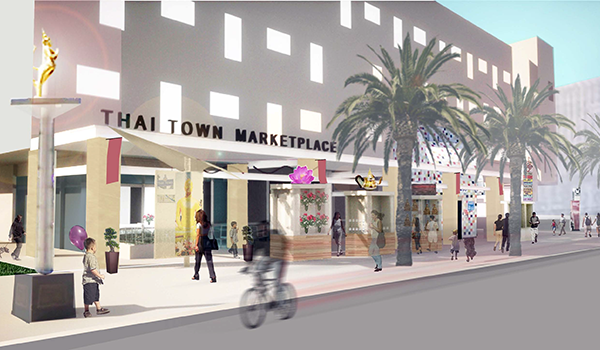The Thai Town Marketplace (TTMP) offers a new approach to urban revitalization and an innovative “green” community market. Representing a model for community economic development, TTMP will create 40 entrepreneurship, management, and service jobs for economically disadvantaged residents of East Hollywood and Los Angeles, while incubating 12 food and 6 retail small business vendors. The Sponsor, Thai CDC, has been doing outreach on an ongoing basis in the surrounding low-income, minority communities to identify those interested in operating a small business at the TTMP location and has already identified 10 low-income individuals to operate 10 of the 12 food stalls. Thai CDC requires that any individual selected to operate at TTMP complete the entrepreneurship training through its affiliated API Small Business Program. Once TTMP is operational, these vendors will receive ongoing technical assistance from Thai CDC and access to shared office equipment.
Thai CDC also operates the weekly farmers’ market in the neighborhood, which will provide opportunities for purchase agreements between marketplace vendors and farmers for healthy, low carbon-footprint food and support the local agrarian economy. Thai CDC will also educate vendors on accepting WIC, food stamps, and other benefit programs. The goal of the TTMP project is to create the first “Health and Wealth Zone” that deliberately links health outcomes with economic outcomes by helping low-income residents start their first business, creating jobs, teaching financial and health literacy, and making social services more accessible.


